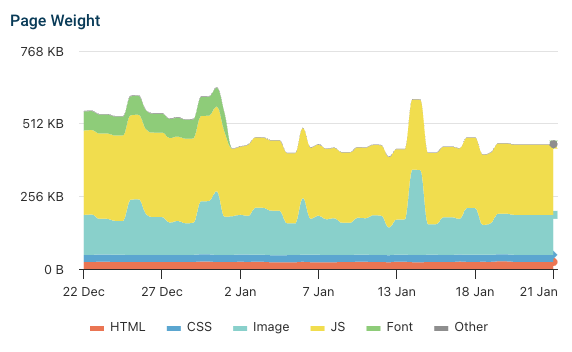Page Size Checker: The Complete Guide to Optimizing Website Performance

Page Size Checker When it comes to running a website, performance is everything. Whether you’re running an eCommerce store, a blog, or a business landing page, your audience expects your website to load quickly and smoothly. This is where tools like a Page Size Checker come into play. A page size checker helps you measure the size of your web pages in terms of kilobytes or megabytes, giving you an accurate idea of how much data needs to be transferred when someone visits your site. In this article, we’ll dive deep into what page size checkers are, why they matter, and how you can use them to improve your website’s speed and SEO.
What is a Page Size Checker?
At its core, a Page Size Checker is an online tool designed to analyze the size of your webpage. When someone visits your website, their browser needs to load every element—HTML, CSS, JavaScript, images, fonts, and videos. All of these files contribute to the total page size.
By using a page size checker, you can see exactly how heavy your pages are. A smaller page size usually means faster load times, while a larger page size could slow your site down. For instance, a page that’s 1 MB may load quickly even on a slow connection, but a page that’s 5–10 MB might take too long, frustrating your visitors.
These tools are often web-based and easy to use. You simply enter your URL, and within seconds, you’ll get a breakdown of your page’s total size along with insights into which elements are consuming the most space. This data can be a game-changer for web developers and digital marketers looking to optimize performance.
Why Page Size Matters for Your Website

Faster Loading Times
The most obvious benefit of reducing page size is faster loading speed. Research shows that users expect a website to load in under 3 seconds. Anything longer, and they’re more likely to abandon your site. A page size checker helps you spot unnecessary bulk and streamline your content so your site loads quickly.
lmproved User Experience
Nobody likes waiting. A fast-loading website creates a smoother browsing experience, keeps visitors engaged, and increases the likelihood they’ll stay longer. Think about it—would you rather explore a website that opens instantly or one that makes you wait five seconds every time you click? Page Size Checker make it easier to deliver that seamless experience.
Better Search Engine Rankings
Page speed is a known ranking factor in Google’s algorithm. If your website is bloated with oversized images, unnecessary scripts, or heavy multimedia files, it could hurt your SEO. By analyzing your site with a page size checker, you can identify what’s slowing you down and fix it. This not only helps with SEO but also boosts conversions since users won’t bounce out of frustration.
How a Page Size Checker Works
A Page Size Checker is typically straightforward. You paste your website’s URL into the tool, and it processes the page by loading it just like a browser would. The tool then measures how much data is transferred during that process.
It usually breaks down the results into categories such as:
- HTML size – The code that structures your site.
- CSS and JavaScript size – Files that control the design and interactivity.
- Image size – Often the heaviest contributor to Page Size Checker weight.
- Font and media files – Extra assets that add personality but also size.
Some advanced Page Size Checker go further by showing you compression ratios, suggestions for optimization, and even comparing your results against recommended standards. This transparency allows you to take action immediately rather than guessing what’s wrong.
Ideal Page Size Checker How Small Should Your Webpage Be?
There’s no universal answer to what the “perfect” page size is, but experts generally agree that smaller is better. As of 2025, the average webpage is around 2–3 MB, but that’s still considered heavy, especially for mobile users on slower connections.
Recommended Targets
- Under 1 MB: Excellent. Lightning-fast and highly optimized.
- 1–2 MB: Good. Acceptable for most websites, but optimization may still help.
- 2–5 MB: Fair. Could cause slower load times, especially on mobile.
- 5+ MB: Heavy. Needs optimization immediately.
A page size checker helps you measure your site against these benchmarks. If you’re above the recommended size, you’ll know it’s time to optimize images, compress code, or cut down on unnecessary elements.
Benefits of Using a Page Size Checker
Pinpointing Problems Quickly
One of the best advantages of a page size checker is its ability to highlight problem areas. Instead of sifting through your site manually, the tool shows you exactly what’s taking up space. Maybe it’s your banner image, maybe it’s an unused script—either way, you’ll know instantly.
Saving Bandwidth Costs
If you’re running a high-traffic site, every megabyte matters. Larger Page Size Checker consume more server resources and increase bandwidth costs. By keeping your pages lightweight, you not only improve user experience but also save money in the long run.
Preparing for Mobile-First Audiences
With mobile traffic dominating the internet, your site needs to load well on smartphones. Page size checkers help ensure that your site is optimized for smaller screens and slower mobile networks. If your page is bloated, mobile users will be the first to notice—and leave.
How to Reduce Your Page Size
Optimize Images
Images are often the largest files on a page. Tools like TinyPNG or WebP formats can significantly shrink image size without losing quality. Make sure your images are compressed and scaled appropriately for your layout.
Minify CSS and JavaScript
Code files can be bulky when they include unnecessary spaces or comments. Minifying these files reduces their size without affecting functionality. Many tools and plugins can handle this automatically.
Use Lazy Loading
Lazy loading ensures that images and videos only load when a user scrolls down to them. This prevents the browser from loading everything at once, making the initial page load much faster.
Enable Compression
Enabling Gzip or Brotli compression on your server can drastically reduce file transfer sizes. Most hosting providers support this feature, and it can cut your page size in half.
Remove Unused Elements
Over time, websites accumulate extra plugins, scripts, and styles that aren’t even being used. Conduct regular audits with your page size checker and remove unnecessary elements.
Popular Page Size Checker Tools
There are several online tools that can help you analyze your website’s size effectively:
- GTmetrix – Offers detailed Page Size Checker analysis along with performance scores.
- Pingdom Tools – Provides insights on load times and page weight.
- Website Planet Page Size Checker – A simple yet effective tool dedicated to Page Size Checker measurement.
- Google PageSpeed Insights – While not strictly a size checker, it shows Page Size Checker impact on performance.
Each of these tools has its pros and cons, but the key is consistency. Run checks regularly to make sure your optimizations are actually working.
Common Mistakes Website Owners Make
Even with a page size checker at your disposal, many site owners fall into the same traps:
- Uploading huge images straight from a camera without resizing.
- Overloading on plugins that add unnecessary code.
- Forgetting mobile optimization, assuming desktop performance is enough.
- Not checking regularly, which means small issues pile up over time.
Avoiding these mistakes can save you a lot of headaches and keep your site fast and user-friendly.
Conclusion: Why You Need a Page Size Checker Today
In today’s digital world, speed isn’t just a luxury—it’s a necessity. A Page Size Checker is one of the simplest, yet most powerful tools you can use to keep your website fast, efficient, and optimized for users and search engines alike. By regularly analyzing your page size, you gain control over how your website performs, ensuring that visitors don’t click away due to slow load times.
The takeaway is clear: smaller page sizes lead to faster sites, happier users, better SEO rankings, and even reduced hosting costs. So, if you haven’t already, start using a page size checker today. Your website—and your audience—will thank you.


